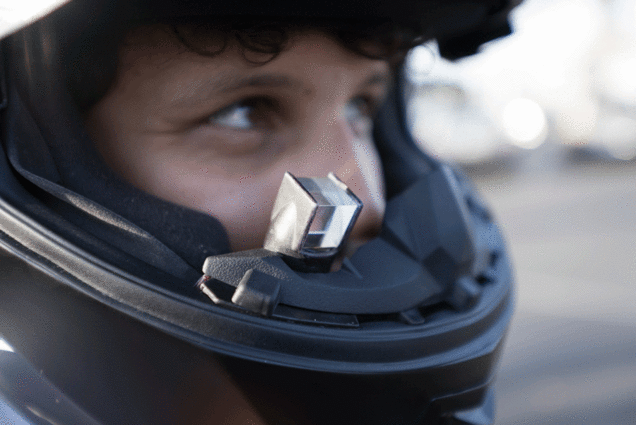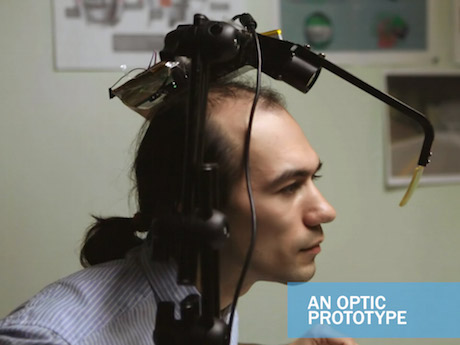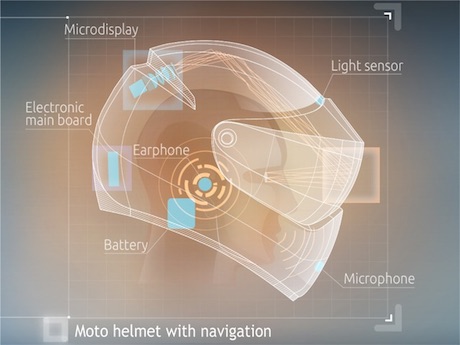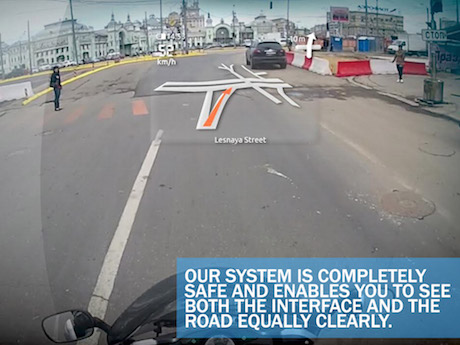A Russian prototype helmet with head-up display is claimed to have “true HUD” while the Skully and coming BMW helmets and aftermarket devices from Nuviz and BikeHUD are basically like Google Glass with small inset screens.
The Livemap helmet is still only in its second prototype stage, but company CEO Andrew Artishchev says they will have them available around the world, including Australia, in 2017 for US$2000.
The difference between the Livemap and other HUD devices is that the Russian unit puts the relevant information in front of the rider as an overlay on their field of vision, whereas the other helmets provide a small screen to the side of their view.
They claim these other units are like Google Glass in a helmet and the disadvantages include a tiny screen and low saturation, contrast and resolution. They say you also have to re-focus to see the screen, but you don’t with their system.

The Livemap helmet uses an optical projector to screen the translucent colour pictures on to the visor. Information displayed will include street names, navigation turn signals, speed, direction and all those other vital bits of information satnav can display.
Andrew says their unit is safer because you don’t have to look away from the road.
However, it remains to be seen whether authorities will deem the Russian system safe because it overlays and therefore interrupts your view, even though the overlay is semi-transparent.
The other problem is that, in summer, most riders have their visor open, so the system wouldn’t work.
The helmet will be fitted with a microphone for voice control, earphones, a light sensor for adjusting image brightness according to conditions, a rechargeable battery, a G-sensor, gyroscope, and digital compass for head movement tracking.
To accommodate all this technology, the helmet will be slightly bigger and weigh more.

It will be Android based, include maps for all countries of the world, plus information such as weather forecast, traffic situations and points of interest.

If you order Livemap helmet now, they will offer a US$500 discount which will help support the research and development phase of the Livemap team.



